Daily, people get angry and harshly tell someone they live or work with about something they don’t like. Leaders are not immune to this. Learn a better approach.
Read MoreWho’s responsibility is it to make things better? How does a plan of action help, and what does it include?
Read MoreDo you smile or shudder when you think of the celebrations around Christmas and New Year? This week’s blog challenges you to do something different this year. To use your brain’s “feel good” power to add magic to the celebrations. It’s a “brain recipe” for a Merry Christmas.
Read MoreWhere do you and your organization spend most of your time: looking forward or backward? It seems many individuals and organizations spend inordinate amounts of time and energy looking backward. It's as if they consider assigning blame and indulging in recriminations the best use of their time. Reflect on how should you spend your time and best efforts.
Read MoreDaily, people get angry and harshly tell someone they live or work with about something they don’t like. Leaders are not immune to this. Learn a better approach.
Read MoreOn last week’s blog post we established how critical it is for leaders to learn to handle conflict effectively. Part of understanding conflict better is making sure we are not working under faulty thinking. Following are 5 of the most common misconceptions you need to be aware of.
Read MoreJesus is the quintessential leader. Putting religious and spiritual beliefs aside, as a model leader, Jesus practiced the most vital principles of leadership—and he provides an example for leaders to imitate. Easter time is a good moment for reflecting on what I consider the greatest characteristic that made Jesus Christ an incomparable leader.
Read MorePeople have strong emotions around change. When I talk to leaders, and when I talk to couples, people talk about “change fatigue,” “exhaustion,” “change saturation,” “change burnout,” “change weary.” Today’s blog explores the difficulties of change and how to prevent change burnout on yourself and others.
Read MoreIn the psychology world, we use the term “rumination” to refer to negative, repetitive, prolonged, unhelpful thinking. This non-constructive form of rumination is of no help to anyone. With the right tools, you can nip rumination in the bud, and avoid the consequences of negative thought loops. On Today’s blog I want to give you those tools.
Read MoreI love words. I like reading them, shaping them into sentences and articles, pondering their meaning, playing with their rhythms, clarifying them, translating them. . . and so on. And yet, words are not enough! See what else you need.
Read MoreMany people plan, but are already thinking all kind of reasons why their plans will not succeed. For any type of plan to succeed you need to believe it’s possible. When you believe in possibilities, not only can you achieve more, you can also inspire others to do the apparently impossible.
Read MoreWhat makes a boss most successful? A few years back Google undertook a study to find out the answer to that question. what makes a boss most successful. They were surprised by the results. This post shares not only what they found, but specific strategies that can help people deal with complex issues.
Read MoreMany people have difficulty with relationships. Seems that there is a lot of negativity going on. Yet, if asked, I'm sure you want to have positive relationships, whether at home or at work. Learn three simple secrets that can have a big influence on your relationships.
Read MoreWorking with leaders and with couples I often interact with people faced with making big decisions where the cost of being “wrong” can be substantial. Focusing on making the “right” decision can easily lead to paralysis. Learn 3 Ways to simplify you decision making process
Read MoreHands are the chief organs for physically manipulating the environment. Through the hands you express the love of doing, of forming for use, and of communicating and relating. On this busy month of December, What do your hands say and convey?
Read More














